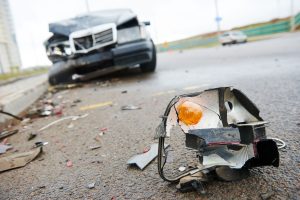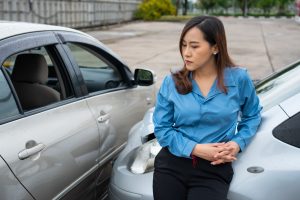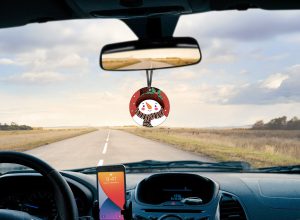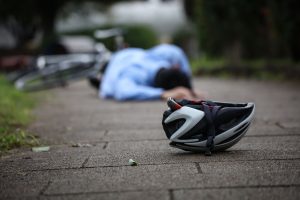Fort Myers Injury Lawyers Discuss Compensation in Florida Hit-and-Run Cases
 Hit-and-run accidents are both incredibly problematic and far too pervasive in Florida. On average, the state clocks 103,000 hit-and-run crashes annually, an incident rate that has climbed 40 percent in the last decade, according to the Florida Department of Highway Safety and Motor Vehicles (FLHSMV). Every year, more than 1,000 people suffer serious bodily injury in these crashes and hundreds lose their lives. Pedestrians and bicyclists tend to be disproportionately affected.
Hit-and-run accidents are both incredibly problematic and far too pervasive in Florida. On average, the state clocks 103,000 hit-and-run crashes annually, an incident rate that has climbed 40 percent in the last decade, according to the Florida Department of Highway Safety and Motor Vehicles (FLHSMV). Every year, more than 1,000 people suffer serious bodily injury in these crashes and hundreds lose their lives. Pedestrians and bicyclists tend to be disproportionately affected.
As Fort Myers injury lawyers can explain, hit-and-run crashes also pose significant hurdles for victims seeking compensation. Understanding the legal avenues that may be available in these situations is an imperative.
Factors Contributing to High Hit-and-Run Accident Rates in Florida
Florida isn’t the only state to have issues with hit-and-runs, but it consistently ranks among the highest in the country.
Some of the most common contributing factors in Fort Myers hit-and-run cases include:
- At-risk drivers. Studies have shown that a disproportionate number of at-fault drivers in hit-and-run crashes are young males with prior arrests for driving under the influence. Alcohol impairment at the time of the accident is also common. (It’s also worth noting that males make up 70 percent of hit-and -run victims in single car/single pedestrian crashes.)
- Socioeconomic factors. Drivers who flee accident scenes frequently operate older vehicles that are not insured. A driver whose finances are precarious may be more motivated to avoid the legal and/or financial repercussions of a crash.
- Environmental conditions. Reduced visibility due to dawn, dusk, nighttime, brush fires, rain, fog, etc. — all of that can contribute to the likelihood of accidents in general, but especially hit-and-run crashes. It may also embolden some drivers to flee, believing they’re less likely to be identified.
- Urban environment. Cities tend to have higher rates of hit-and-run crashes than rural areas, likely thanks to higher population density and the fact that there are more pedestrians in urban areas.
Whatever happens in the criminal case, civil claims are handled separately.





 Florida Personal Injury Lawyer Blog
Florida Personal Injury Lawyer Blog



 Flip-flops and bare feet are quite common footwear given the warm and sunny weather of South Florida. But just because it’s common doesn’t mean it’s without consequence. If you’re in a Fort Myers car accident while wearing loose shoes (like flip-flops) or none at all, that could be a real issue as discussed below.
Flip-flops and bare feet are quite common footwear given the warm and sunny weather of South Florida. But just because it’s common doesn’t mean it’s without consequence. If you’re in a Fort Myers car accident while wearing loose shoes (like flip-flops) or none at all, that could be a real issue as discussed below.
 Recent changes to Florida’s tort laws have made it a bit tougher to successfully sue for crash-related injuries if you were partly at-fault. That said, you shouldn’t presume it’s pointless until you talk to a Fort Myers car accident lawyer – especially if your injuries were serious enough to require hospitalization or time off work. While the new comparative fault law certainly creates legal challenges, rarely are matters of personal injury entirely black-and-white.
Recent changes to Florida’s tort laws have made it a bit tougher to successfully sue for crash-related injuries if you were partly at-fault. That said, you shouldn’t presume it’s pointless until you talk to a Fort Myers car accident lawyer – especially if your injuries were serious enough to require hospitalization or time off work. While the new comparative fault law certainly creates legal challenges, rarely are matters of personal injury entirely black-and-white. Car insurance is more expensive in Florida than any other state.
Car insurance is more expensive in Florida than any other state.  In a win for people seeking fair compensation for Florida car crash injuries, the Florida Supreme Court recently ruled against an auto insurer trying to minimize a claimant’s rightful payout.
In a win for people seeking fair compensation for Florida car crash injuries, the Florida Supreme Court recently ruled against an auto insurer trying to minimize a claimant’s rightful payout. A central part of resolving any Florida car accident case is negotiation with insurers. You may not need to go to trial or even file a lawsuit. But you will almost certainly be negotiating with at least one insurer at some point. Some folks feel comfortable handling this themselves, but for reasons laid out in this blog post, they might want to think twice. If you botch the negotiation by turning down a fair car accident settlement offer from the insurer, you could lose everything – even with a winning case.
A central part of resolving any Florida car accident case is negotiation with insurers. You may not need to go to trial or even file a lawsuit. But you will almost certainly be negotiating with at least one insurer at some point. Some folks feel comfortable handling this themselves, but for reasons laid out in this blog post, they might want to think twice. If you botch the negotiation by turning down a fair car accident settlement offer from the insurer, you could lose everything – even with a winning case. Electric bicycles, aka “e-bikes,” have become incredibly popular here in the Sunshine State. If you’re unfamiliar, these are pedal-operated bicycles equipped with an electric bike motor to assist. U.S. sales of e-bikes topped $1.3 billion in 2022, and Floridians love them, as they’re allowed on most roads, bike paths, and trails where traditional bikes can operate.
Electric bicycles, aka “e-bikes,” have become incredibly popular here in the Sunshine State. If you’re unfamiliar, these are pedal-operated bicycles equipped with an electric bike motor to assist. U.S. sales of e-bikes topped $1.3 billion in 2022, and Floridians love them, as they’re allowed on most roads, bike paths, and trails where traditional bikes can operate. Sparkling decor is part of the magic of the holiday season. But as a Fort Myers injury lawyer, I’d strongly advise you to keep it away from your steering wheel.
Sparkling decor is part of the magic of the holiday season. But as a Fort Myers injury lawyer, I’d strongly advise you to keep it away from your steering wheel. School zone or zoo? Anyone who’s traversed a school zone South Florida at busy pickup or drop-off times might have a tough time discerning. For all school officials and traffic safety engineers prioritize keeping kids safe, the Florida school zone crash risk is still high : Speeding drivers, school bus drivers with big blind spots, distracted walkers and cyclists (especially those with noise-canceling headphones), jaywalkers, and
School zone or zoo? Anyone who’s traversed a school zone South Florida at busy pickup or drop-off times might have a tough time discerning. For all school officials and traffic safety engineers prioritize keeping kids safe, the Florida school zone crash risk is still high : Speeding drivers, school bus drivers with big blind spots, distracted walkers and cyclists (especially those with noise-canceling headphones), jaywalkers, and 
 Many serious and recreational cyclists know they can
Many serious and recreational cyclists know they can 






